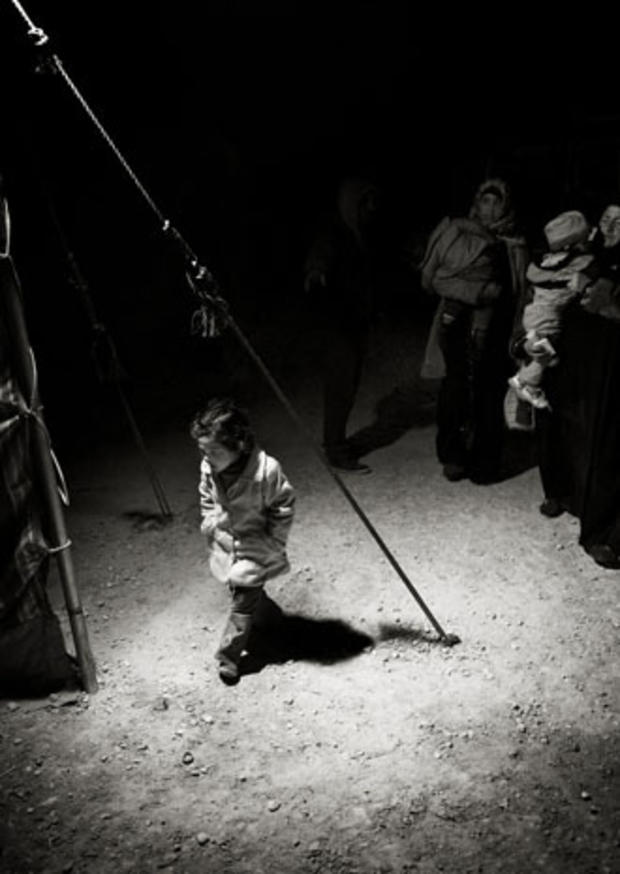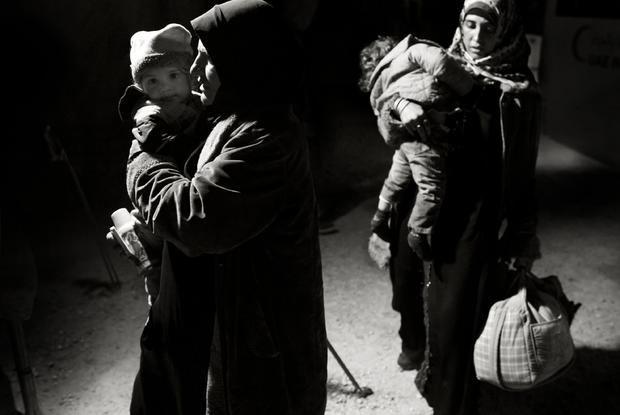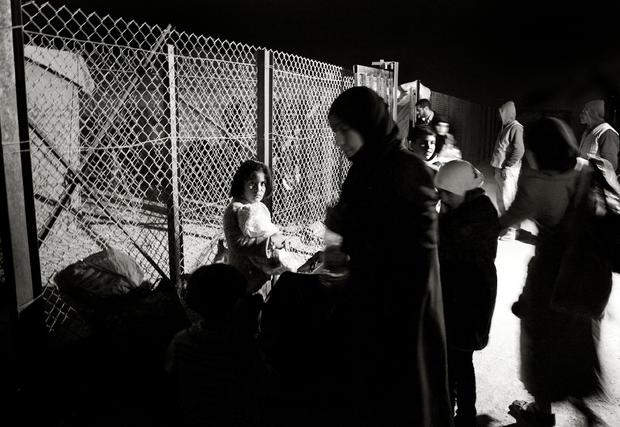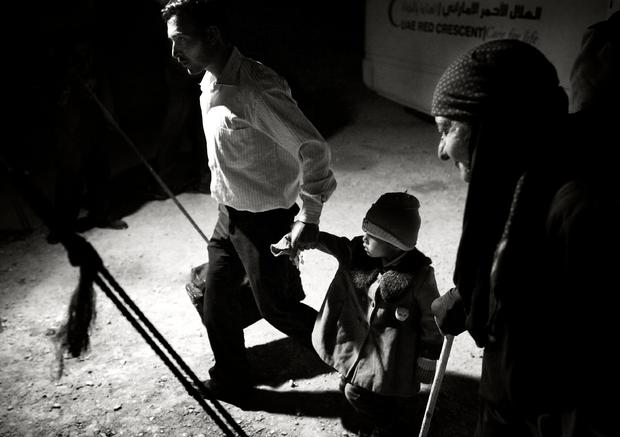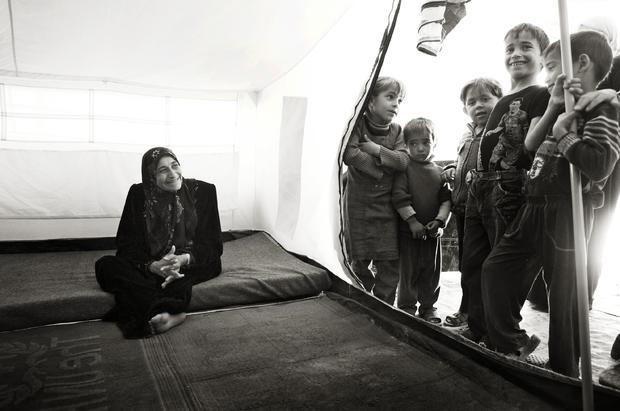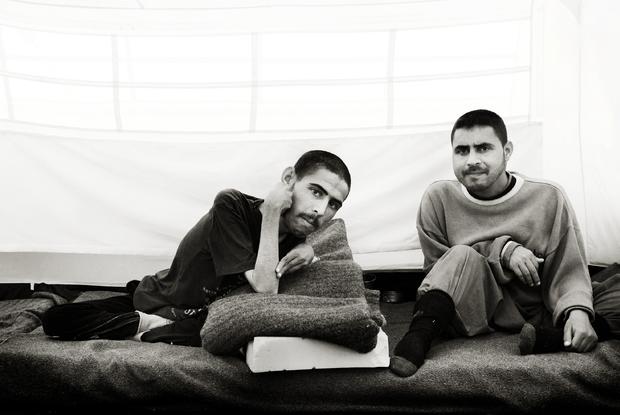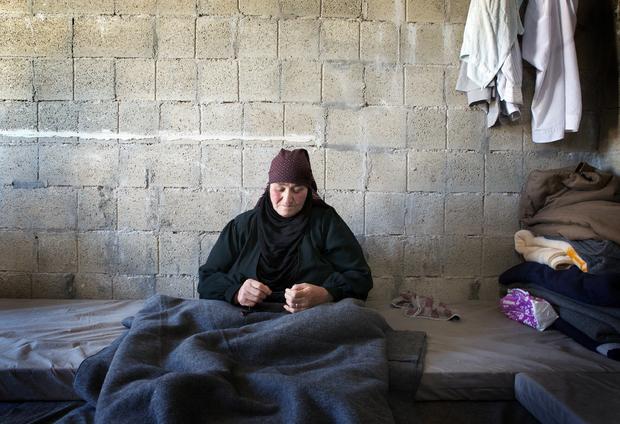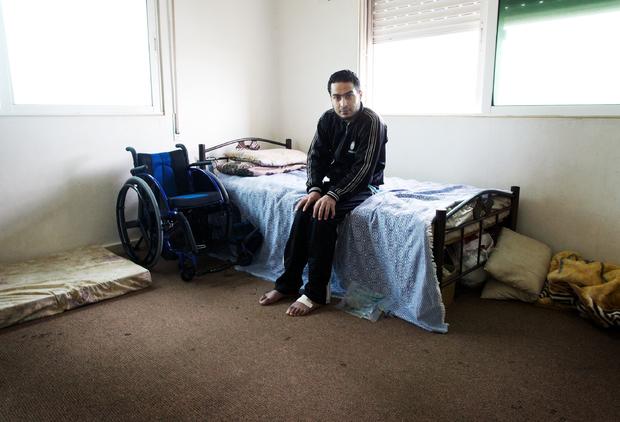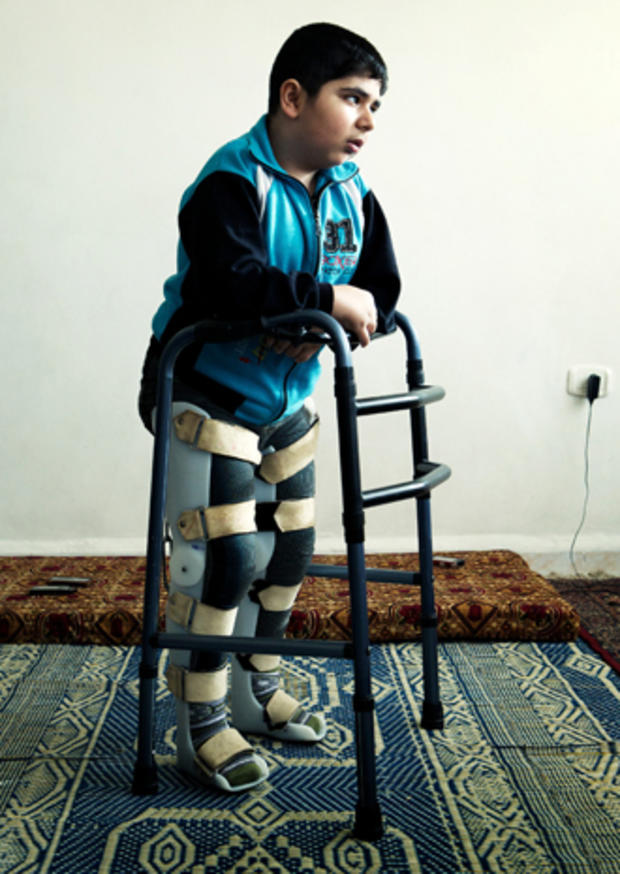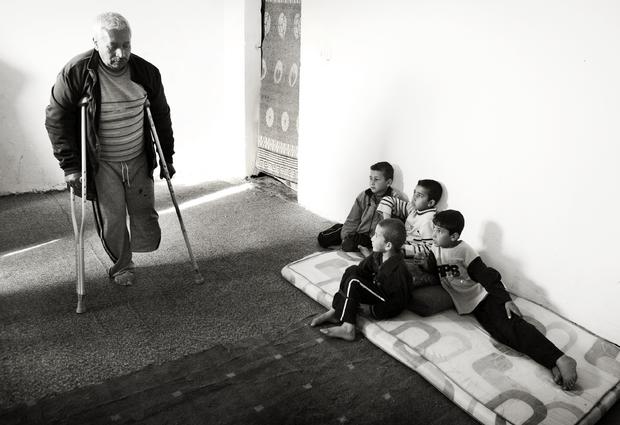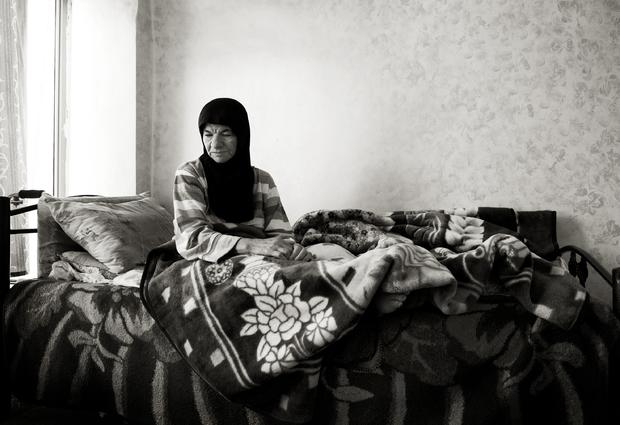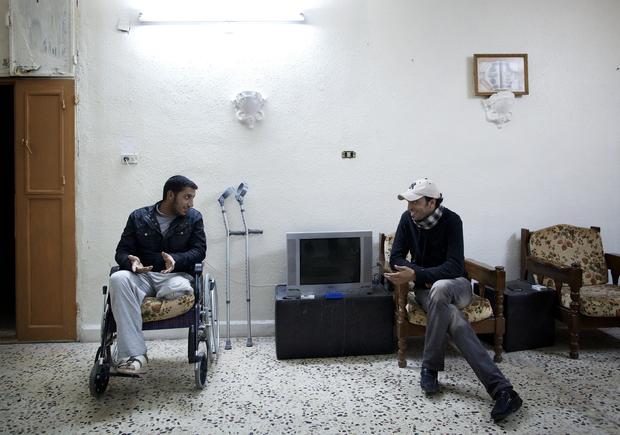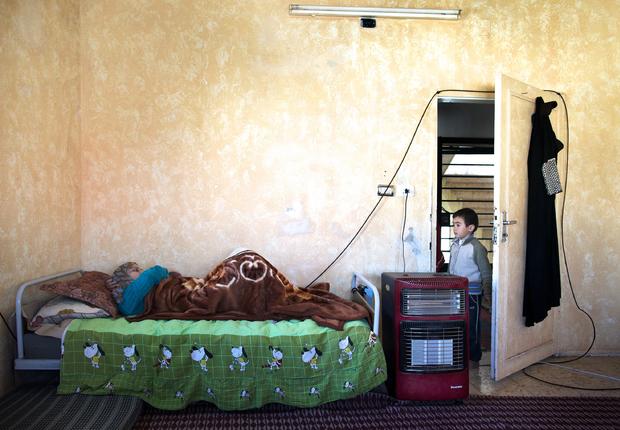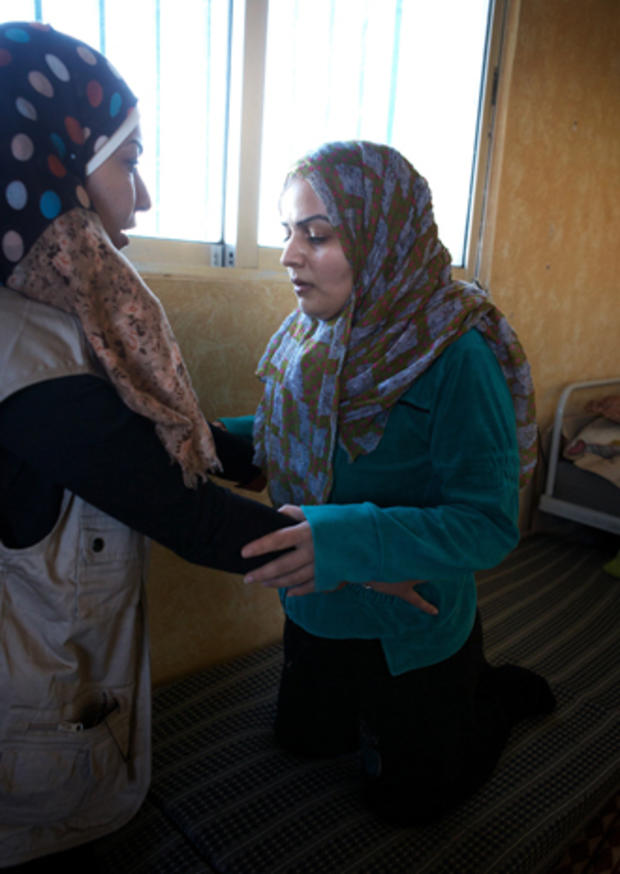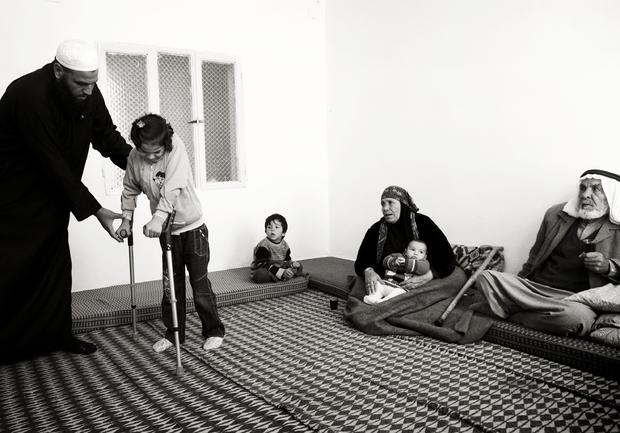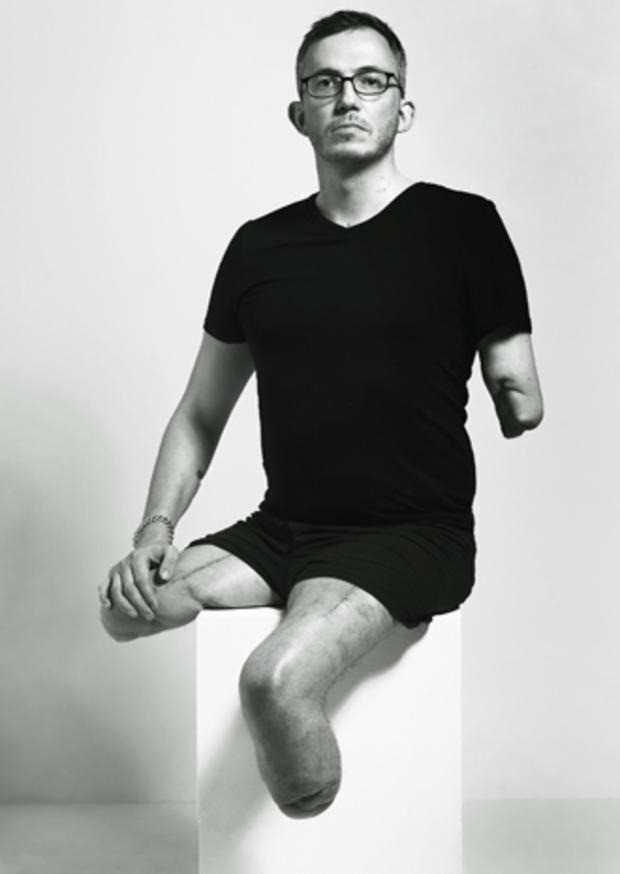Syrian refugees with a double-curse
Many have walked for hours cross-country, carrying what possessions they can.
The camp is currently home to at least 175,000 Syrians -- making it the fifth largest, and fastest growing city in Jordan.
Welcome to Zaatari
About 2,000 refugees arrive from Syria every day. There are expected to be more than 200,000 at Zaatari by the end of the year, and they are only a fraction of the estimated 1.3 million people to have fled Syria for other countries.
Waiting for registration
New arrivals are registered, given a health check, a meal, a tent, bedding and a gas stove, then finally allocated their space within the camp. The charity Handicap International immediately assesses the needs of those arriving with disabilities.
Entering uncertainty
The refugees come from diverse backgrounds in Syria -- from rebel fighters to relatively well-off families, some arriving to the camp in their finest clothes and clutching what few valuables they could carry.
"I remember thinking how it must be, to be a father, to be a mother, and having to take your whole family to such uncertainty," photographer Giles Duley told CBSNews.com.
No husband, 1 leg, 10 children
After several months of treatment, her leg was amputated. Sawsan told Duley that when she returned home, the fighting had become more intense in her neighborhood and she was finally forced to flee when her home was damaged.
Now she finds herself living in a tent, an above-knee amputee, with 10 children to worry about.
Not just war wounds
The collapse of the Syrian healthcare system has left them without the long-term support they require.
Basil, 19, and his brother, Faraj, 22, both have severe Spinal Muscular Atrophy. Their widowed mother grew fearful for their safety as the fighting intensified and their house was hit by shell fire. As neither of her sons can walk, neighbors and strangers she met on the journey had to help carry the young men across the border.
Alone and trapped
Scared to seek treatment in Syria, she fled to Jordan and is now living in the Zaatari camp. Though her hip has been fixed, she's still unable to walk and finds it impossible to get around the camp by wheelchair due to the rough terrain.
She has no family at the camp.
Prove the doctors wrong
Shaher told Duley he was determined to prove wrong the doctors who told him he would never walk again. He hopes to return to Syria.
Longing for home
It took a long time for him to get proper treatment, which meant his recovery has been painful and slow, made worse by the fact he already suffered from juvenile arthritis.
Bashar is now getting physiotherapy from Handicap International, and longs for the day when he can return to Syria and to school.
He lives with his family on the 5th floor of an apartment in Jordan. Syrian families with access to money can find private accommodation outside the refugee camp, but rent prices have skyrocketed.
While lucky to be away from the tent city of Zaatari, and to be getting medical care, there is no elevator in the apartment building, so Bashar is virtually trapped.
"At least I still have one of each"
One night, a few months earlier, the lights suddenly went out on his farm. An hour later, he says rockets hit and destroyed the building.
His daughter was killed and he lost his leg.
"I lost a child and a leg," he told Duley, "at least I still have one of each."
Isolation
With no family to support her, she looks forward to visits by the Handicap International physiotherapist.
Wounded warrior
As the fastest in his unit, he was often sent ahead as a scout, something he was proud to do. He was hit by shrapnel from a tank shell that severed his leg.
Just a few months later in Jordan, he argues and jokes with his cousin about whether he should go back to fight once he has a prosthetic leg. His family is trying to persuade him not to, but he's determined to get back to the war.
Life upended
When others tried to reach the bus they were shot and killed by a sniper. It was three hours before help finally reached Lubna, and she was taken to a government hospital. She was told she would be unable to walk again.
She heard the Syrian Army was killing some of the other patients from the bus, and her family quickly got her across the border to a hospital in Jordan.
Lubna's husband, a Syrian policeman, threatened to divorce her if she didn't return to Syria. Now divorced, she lives with her father, sister and 5-year-old brother in a rented apartment in Jordan.
Physio
It's unlikely she will walk unaided again. She hopes one day peace will return to Syria, so she can return to her studies.
No one is safe
She's nine years old, and despite the best efforts of physiotherapists, Isra is unlikely to walk unaided again.
Undeterred, and supported by her aunt and uncle, she pushes herself in rehabilitation every day to the point of tears.
Know your subject matter
"I've become closer to the subject," he told CBSNews.com. "The things I was saying hadn't changed, but my voice had got a lot louder because of the attention I was receiving, because of what happened to me, so it felt in many ways like a duty to carry on with my work."
